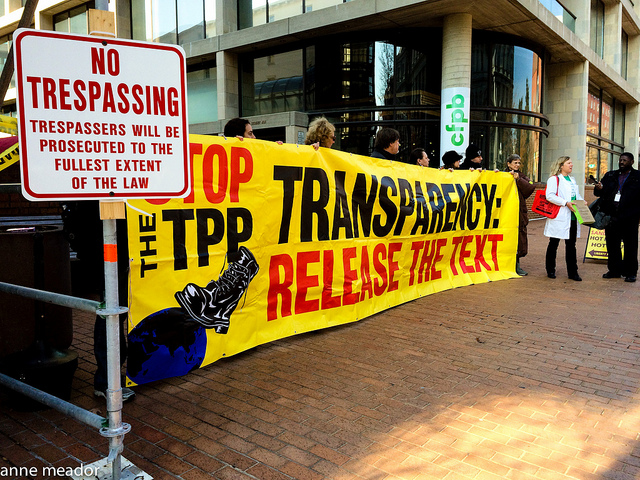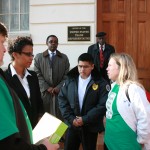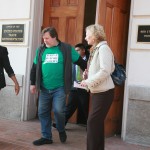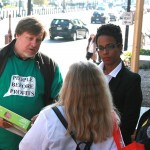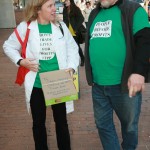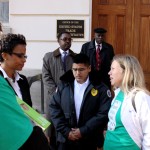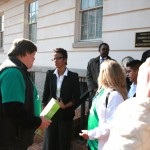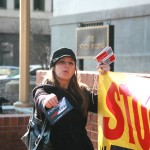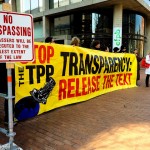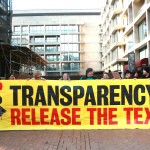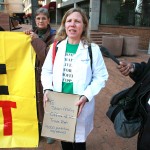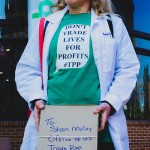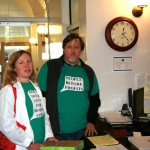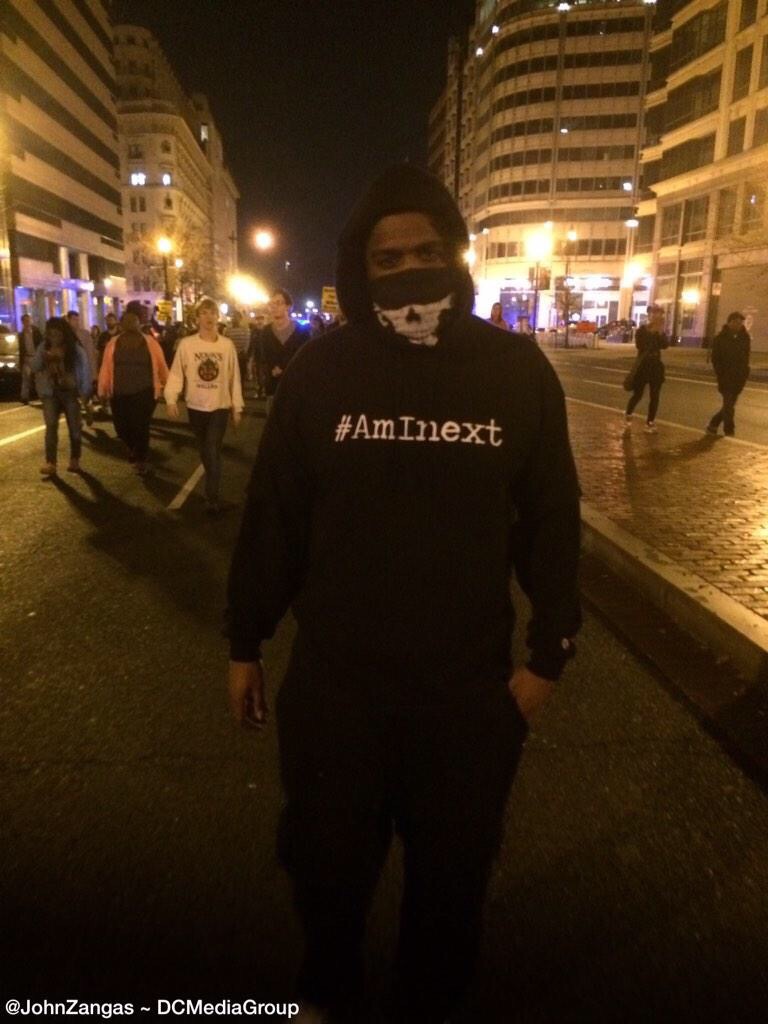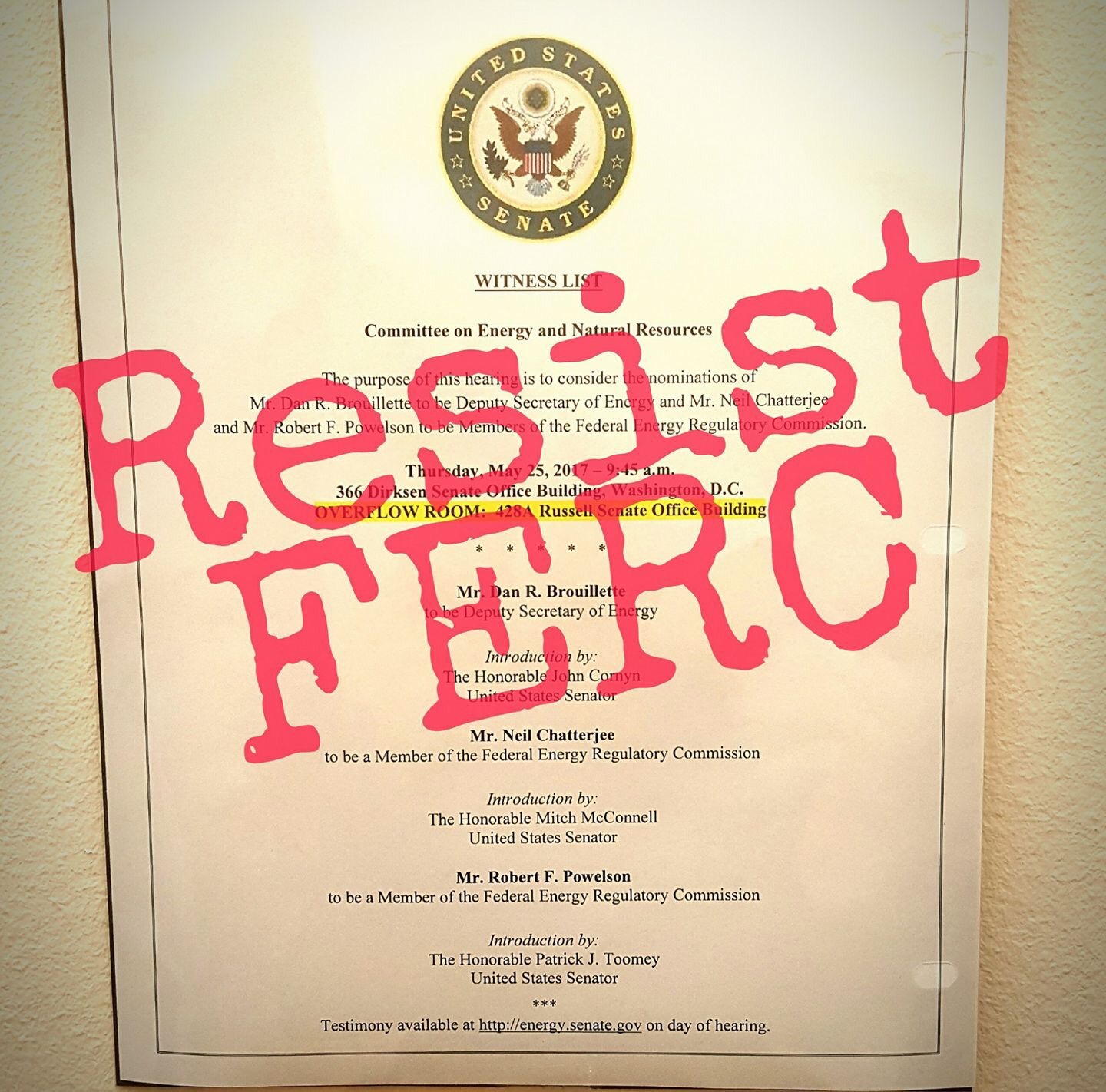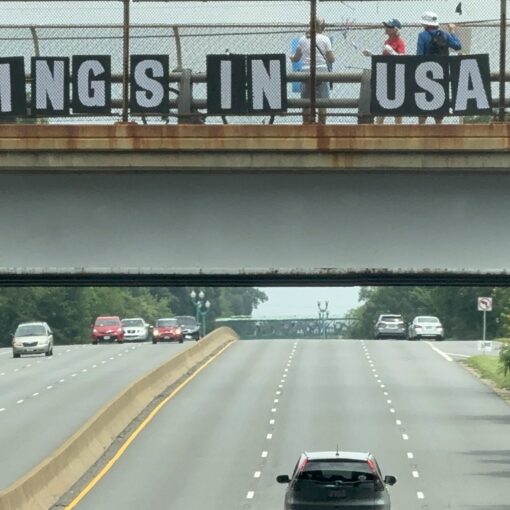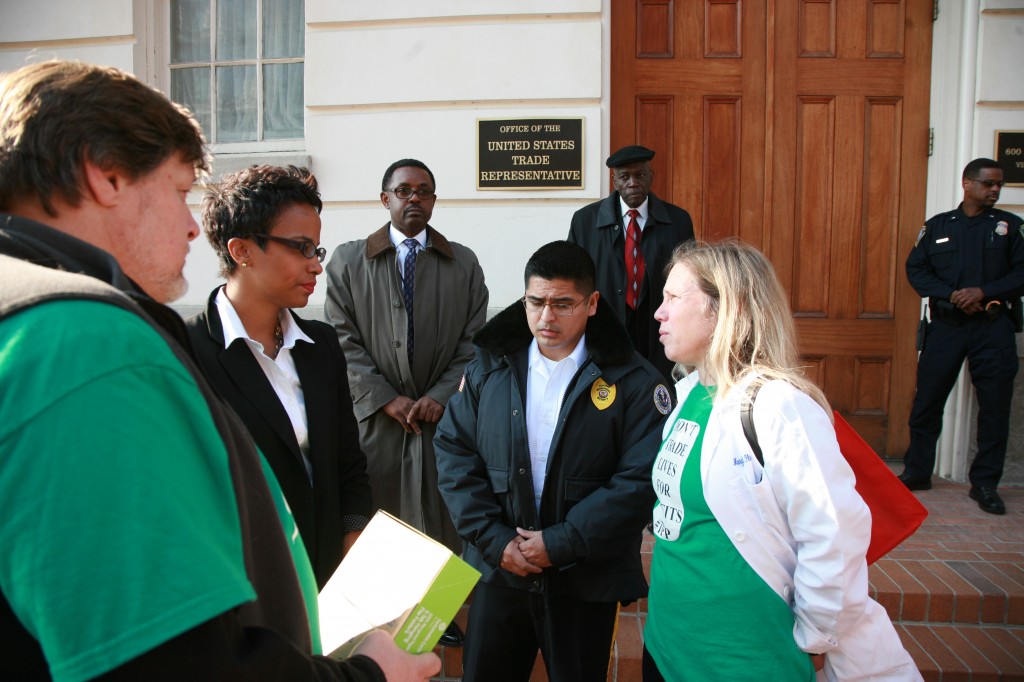
A dozen activists at the U.S. Trade Representative Building in Washington, DC today demanded to see Stan McCoy, the lead negotiator of the intellectual property rights section of the trade treaty called the Trans Pacific Partnership (TPP). While McCoy, the Assistant U.S. Trade Representative for Intellectual Property and Innovation, wouldn’t meet with the protestors, a USTR staff member listened to their concerns about secrecy surrounding TPP negotiations, its preference for corporate interests and McCoy’s “bullying” tactics.
The delivery of the petition and protest at the USTR Building was part of an International Day of Action Against Toxic Trade Agreements to stop the progress of TPP negotiations. It coincides with the first day of World Trade Organization meetings in Bali, Indonesia. TPP negotiations will take place at the end of those meetings. The Flush The TPP! Campaign coordinated the petition effort.
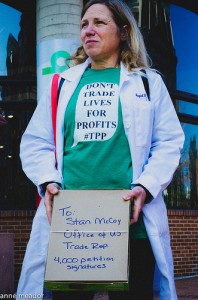
Dr. Margaret Flowers held the box full of printed out petition signatures. She wore her doctor’s coat over a t-shirt that said, “Don’t Trade Lives for Profits.” “As a physician, this is one of a my greatest concerns, of the impacts of the TPP on health,” she said.
She accused the negotiation process of being biased in favor of pharmaceutical and medical device companies who would benefit from patent restrictions. “They’re trying to give evergreen patents for pharmaceuticals and medical devices which also keeps those prices high and out of the hands of many. It will really result in trading away people’s lives for profit.”
While meeting with Jewel James, Assistant U.S. Trade Representative for Intergovernmental Affairs and Public Engagement, Kevin Zeese put the TPP’s proposed measures in even starker terms. “These [drugs and procedures] will be too expensive for people who can’t afford it. You know what that adds up to? Death. Thousands and thousands of deaths.”
Zeese repeatedly referred to “bullying” in the trade negotiations. According to an academic monitoring the talks, “The US has adopted a strategy of exhaustion in its bullying of negotiators on the crucial intellectual property chapter to force countries to trade away health in the Trans-Pacific Partnership Agreement negotiations in Salt Lake City [in November].” One demand in the petition delivered to the USTR is that “the negotiations should be conducted in a manner that is democratic and respectful of the negotiators’ needs and resources.”
“So Stan McCoy needs to know that he’s being watched,” Zeese emphasized. “And people are aware of his tactics, and that we’re going to publicize his tactics.”
James politely accepted the petition. “You have the right obviously to make your concerns known, and we take that very seriously,” she said.
While the USTR contends that the TPP is “the most transparent trade negotiation in history,” the contents are largely secret because the treaty itself is classified. Only leaked portions have been made public. A draft of the section on intellectual property rights and patents was leaked and distributed by media group Wikileaks in mid-November.
Many organizations have parsed the leaked text and criticized its potential effects. Among the findings is the disproportionate influence of the pharmaceutical and film industries, companies which are among 600 corporate advisers to the treaty negotiations.
- Activists meet with Jewel James of USTR /Photo by Ted Majdosz
- Photo by Ted Majdosz
- Photo by Ted Majdosz
- Photo by Ted Majdosz
- Photo by Ted Majdosz
- Photo by Ted Majdosz
- Photo by Ted Majdosz
- Photo by Ted Majdosz
- Photo by Ted Majdosz
- Photo by Ted Majdosz
- Photo by Ted Majdosz
- Photo by Ted Majdosz
- Dr. Margaret Flowers
- Photo by Ted Majdosz
- Photo by Ted Majdosz

